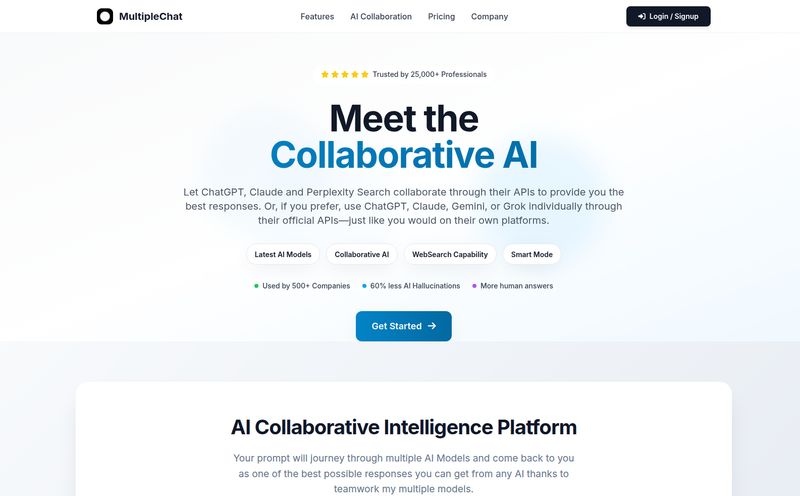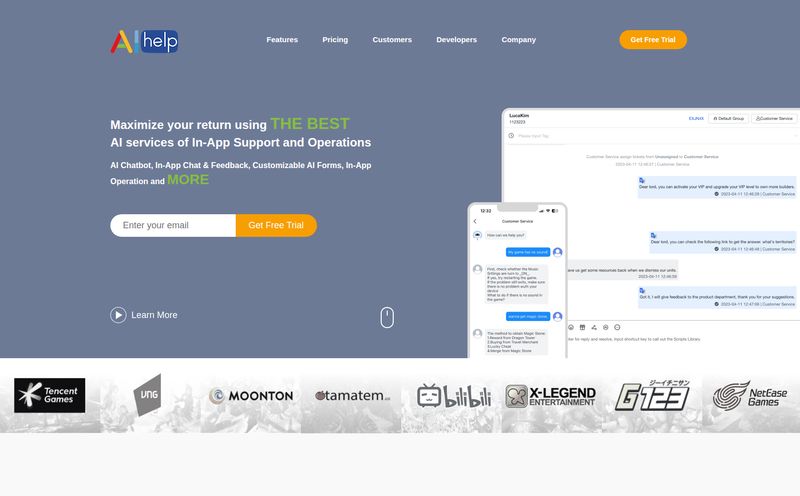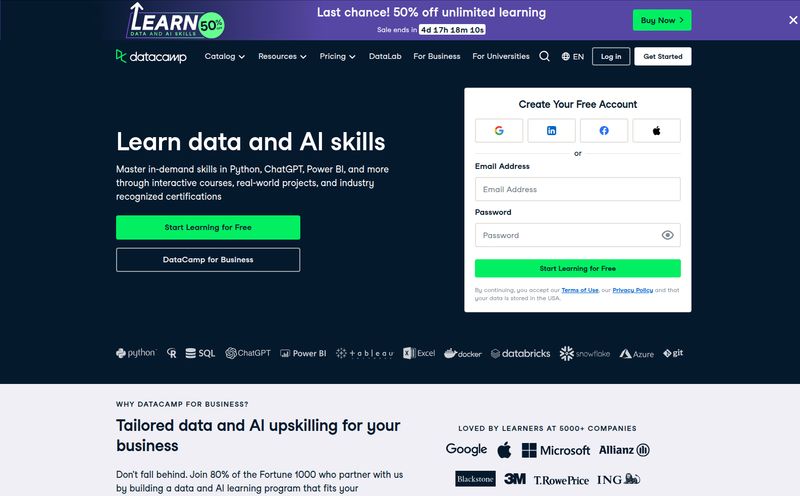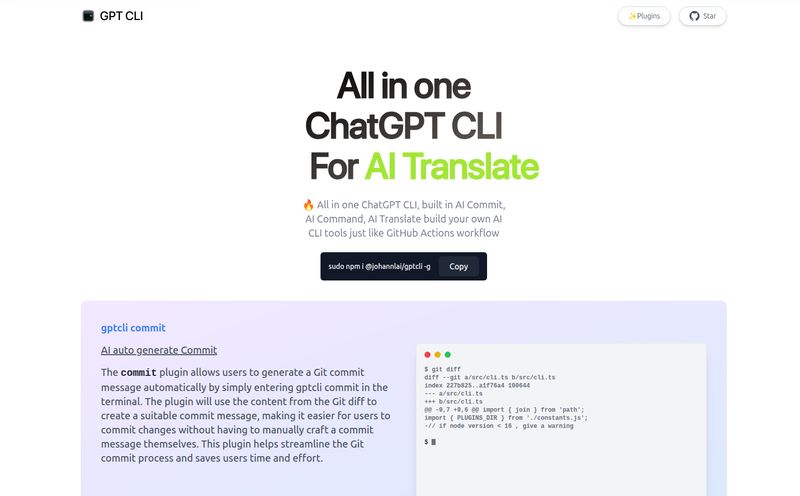The last couple of years in the tech and marketing world have been a mad dash. A gold rush. Every company, from the tiniest startup to the biggest enterprise, is scrambling to cram Generative AI into their products. It's exciting, it's transformative, and it's… honestly, a little terrifying.
We're all so focused on the “wow” factor of what Large Language Models can do that we sometimes forget to ask, “what could go wrong?” I’ve seen it happen. A chatbot that starts spewing nonsense, a smart tool that accidentally leaks customer PII, or a content generator that hallucinates facts so convincingly it could pass a lie detector test. It's the stuff of engineering nightmares and PR disasters.
For a while, we’ve been building custom, clunky, and often flimsy fences around our AI models. It felt like we were all reinventing the wheel, and most of those wheels were kinda square. That’s why when I started seeing more about Aporia, I was intrigued. And when I heard they were acquired by Coralogix, a name I seriously respect in the observability space, I knew I had to take a proper look.
So What Exactly is Aporia?
Think of Aporia as a bouncer for your AI. Or maybe a highly intelligent, lightning-fast security guard that stands between your LLM and the outside world. Its job is to check every single prompt and every single response to make sure nothing bad gets in, and nothing sensitive gets out. It’s a platform dedicated to providing AI Guardrails and Observability. In plain English, it helps you make your AI applications secure, reliable, and something you can actually trust in production.
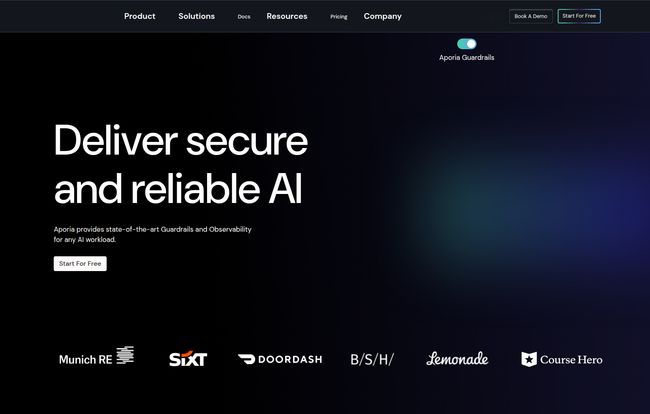
Visit Aporia
This isn't just about blocking a few bad words. We're talking about a sophisticated defense system against the real threats that keep developers up at night.
The Guardrails That Actually Matter
Aporia splits its protection into two main camps: Security and Reliability. And this is where my inner SEO/tech nerd gets really excited, because they’re targeting the actual problems we face.
Keeping the Bad Guys Out (Security Guardrails)
This is all about protecting your application from malicious users. Aporia provides out-of-the-box policies for things like:
- Prompt Injections: This is a big one. It’s when a clever user tricks your AI into ignoring its original instructions and doing something else, like revealing its system prompt or performing a forbidden action. Aporia sniffs this out before it can cause trouble.
- PII Leakage: It actively scans prompts and, more importantly, the AI's responses to make sure sensitive Personal Identifiable Information (like names, emails, credit card numbers) isn't accidentally exposed. This is huge for any customer-facing application and for compliance reasons like GDPR.
- SQL Enforcement: It prevents users from trying to sneak SQL commands into a prompt, a classic injection attack vector that could put your database at risk.
Keeping Your AI On-Brand and On-Topic (Reliability Guardrails)
This side is more about protecting your brand and ensuring a good user experience. Nobody wants their professional support bot to suddenly start discussing conspiracy theories. Aporia helps with:
- Toxicity & Off-Topic Discussions: It keeps the conversation clean and focused. You can define what topics are off-limits, ensuring your AI stays professional.
- RAG Hallucinations: If you’re using Retrieval-Augmented Generation (RAG) — where an AI answers questions based on a specific set of documents — you know how frustrating hallucinations can be. The AI just makes stuff up. Aporia has a specific guardrail to check if the AI’s response is actually grounded in the provided context. This is a game-changer for building trustworthy Q&A bots.
- Competition Discussion: A simple but brilliant idea. You can prevent your AI from mentioning or promoting your competitors.
And the best part? You can create custom policies. If you have a unique rule your AI needs to follow, you can build a guardrail for it. This flexibility is what separates a decent tool from a great one.
Okay, It's Powerful. But What Does Aporia Cost?
Ah, the pricing page. The moment of truth for any new tool. Aporia’s model is based on something called a GRU, or a “Guardrail Unit.” I'll admit, at first glance, I thought, “Oh great, another proprietary metric to decipher.”
But it's actually pretty straightforward. Aporia calculates GRUs based on the number of tokens you process and the number of policies you apply. More usage, more GRUs. Simple enough. The good news is they have a very generous free tier to get you started.
| Plan | Price | Key Features |
|---|---|---|
| Free | $0 / month | 1M GRUs/month, 3 projects, 5 seats, 3 custom policies. Perfect for testing and small projects. |
| Team | $60 / month | 5M GRUs/month, unlimited projects & seats, 10 custom policies, faster support. Ideal for growing teams. |
| Enterprise | Custom | Custom GRUs, unlimited everything, SLAs, SSO, and full compliance (SOC2, HIPAA/BAA). For the big leagues. |
My take? The Free plan is legitimately useful. 1 million GRUs is plenty to get a real feel for the platform and even protect a low-traffic application. The Team plan is reasonably priced for any serious business that's putting AI in front of customers. You can find more details over at their official pricing page.
My Honest Opinion: The Good and The Complicated
After playing around with it and looking at the whole package, I'm genuinely impressed. The accuracy of their detection engine feels top-notch, and the fact that it's all designed for extremely low latency means it won't slow down your user experience—a critical factor for real-time apps.
The enterprise-grade security is also a massive green flag. Being SOC 2 and HIPAA compliant isn't just a logo on a webpage; it’s a difficult, expensive process that signals a serious commitment to security. For any company in healthcare, finance, or just handling sensitive data, this is non-negotiable.
Is it perfect? Nothing is. The GRU pricing model, while logical, does require a little bit of calculation to forecast your costs. They have a calculator on their site which helps, but it's not as simple as a flat per-seat fee. Also, this is a powerful tool, not a magic wand. You’ll need to invest some time in configuration and tuning to dial in the policies perfectly for your specific use case. It’s not a con, really, just the reality of professional-grade tools.
Who Should Be Using Aporia?
I see a few clear winners here.
If you're a startup or a small team shipping your first AI feature, the free tier is a no-brainer. It gives you professional-level protection without the enterprise price tag. It’s a chance to build good habits from day one.
If you're a mid-sized company with a customer-facing AI product, the Team plan is your sweet spot. The value you get in risk mitigation and brand protection far outweighs the $60/month starting price.
And for large enterprises, especially in regulated industries, Aporia is clearly built for you. The custom policies, SSO, PrivateLink support, and compliance certifications are exactly what CSOs and legal teams want to see.
In the end, building with AI without a proper set of guardrails is like driving a race car without a seatbelt or a helmet. It’s fun until it isn’t. Tools like Aporia are becoming less of a “nice-to-have” and more of an essential part of the modern tech stack. It brings a much-needed dose of security and reliability to the exciting, chaotic world of generative AI.
Frequently Asked Questions about Aporia
- 1. What is a GRU (Guardrail Unit)?
- A GRU is Aporia's pricing metric. It's calculated based on the volume of data (tokens) you process and how many security/reliability policies you apply to that data. The more you use, the more GRUs you consume.
- 2. Is Aporia difficult to set up?
- Aporia is designed for seamless integration. It works with popular infrastructures and AI Gateways like Portkey and LiteLLM, often requiring just a few lines of code to get started. However, to get the most out of it, you'll want to spend some time configuring and customizing the policies to fit your needs.
- 3. Can Aporia prevent AI model hallucinations?
- Yes, specifically for RAG (Retrieval-Augmented Generation) systems. It has a dedicated guardrail that checks if the model's output is factually grounded in the source documents it was given, which significantly reduces the risk of this type of hallucination.
- 4. What kind of AI models does Aporia support?
- Aporia is model-agnostic. It works with any AI workload, including models from OpenAI (GPT-4, GPT-3.5), Anthropic (Claude), Cohere, and open-source models. It sits as a layer between your application and the model, so it can monitor and protect any of them.
- 5. Does Aporia store my company's data?
- Aporia is a security platform and takes data privacy seriously. It processes data in real-time to detect threats but follows strict data handling protocols. For companies with extreme data residency needs, the Enterprise plan offers options like PrivateLink support for AWS, Azure, and Google Cloud.
